Intro
This is the painting before it was re-stretched. It is an oil painting from 1995, called Frits watching TV (Red). Frits, the current owner, depicted in the painting is holding the painting.↓
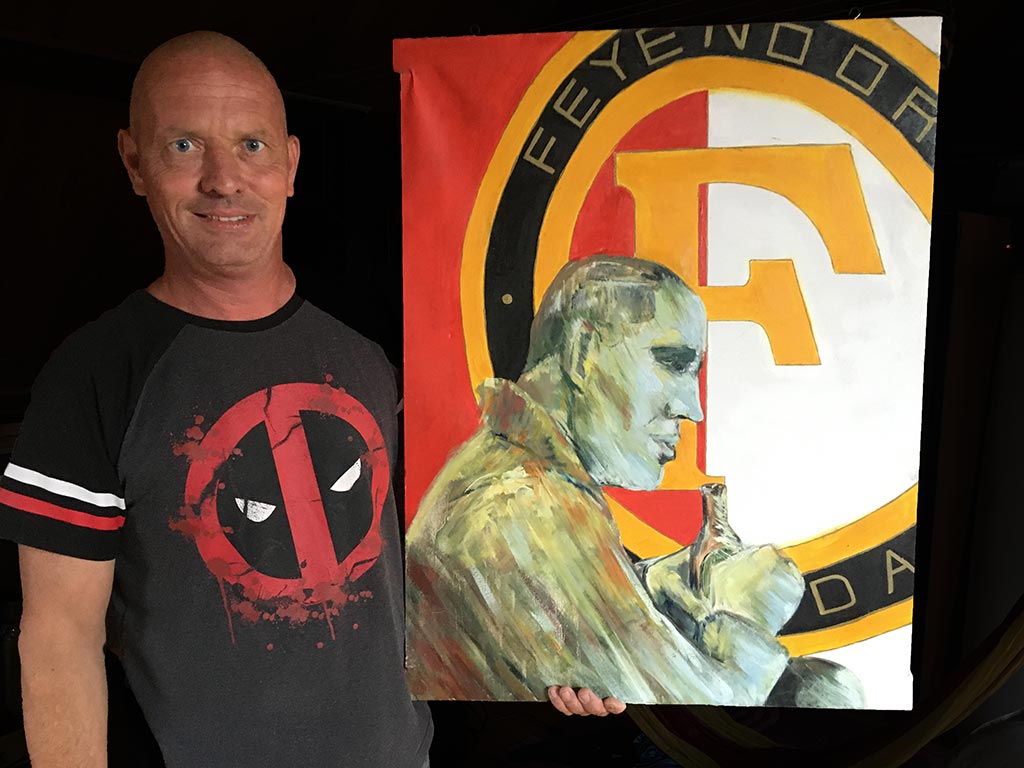
The Dutch Flag
This painting was one panel of an originally large nine-paneled art piece. Which I made while studying at the Art Academy. Work Story →
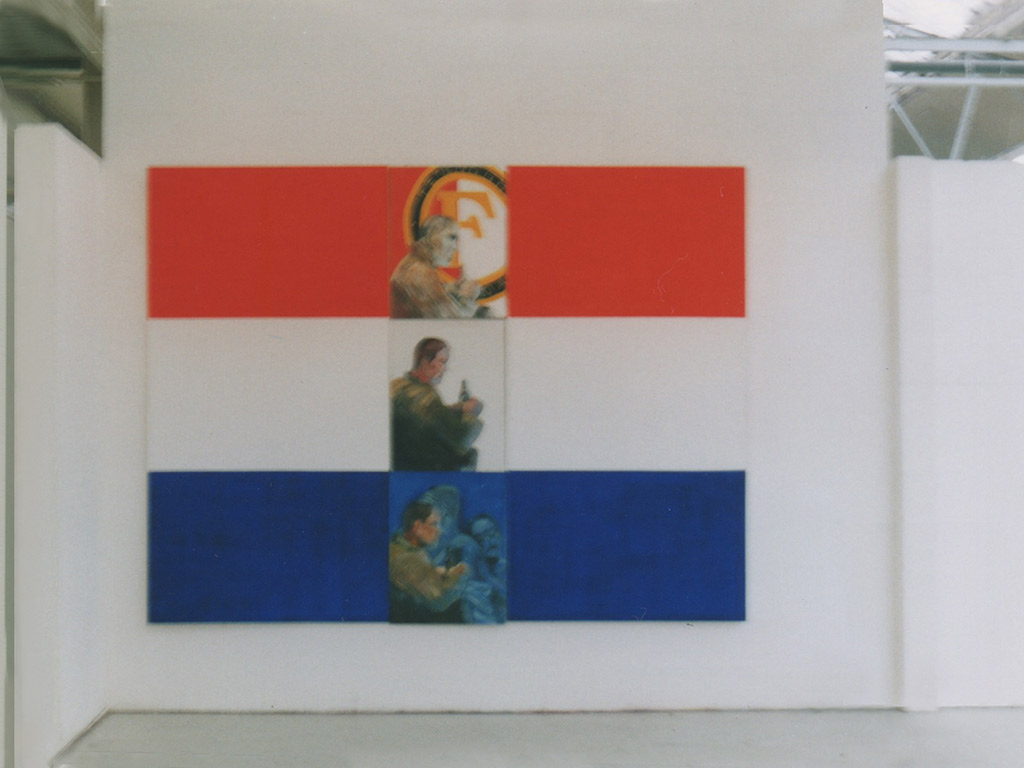
Re-stretched by
The painting has been re-stretched by Art-Dealer Neo in Roermond (Netherlands). Owner Gino Vrancen himself took care of it. Gino is also a professional art restorer, so I felt the painting was safe in his hands.
Examination
Gino took the painting to his working table to examine and measure it.
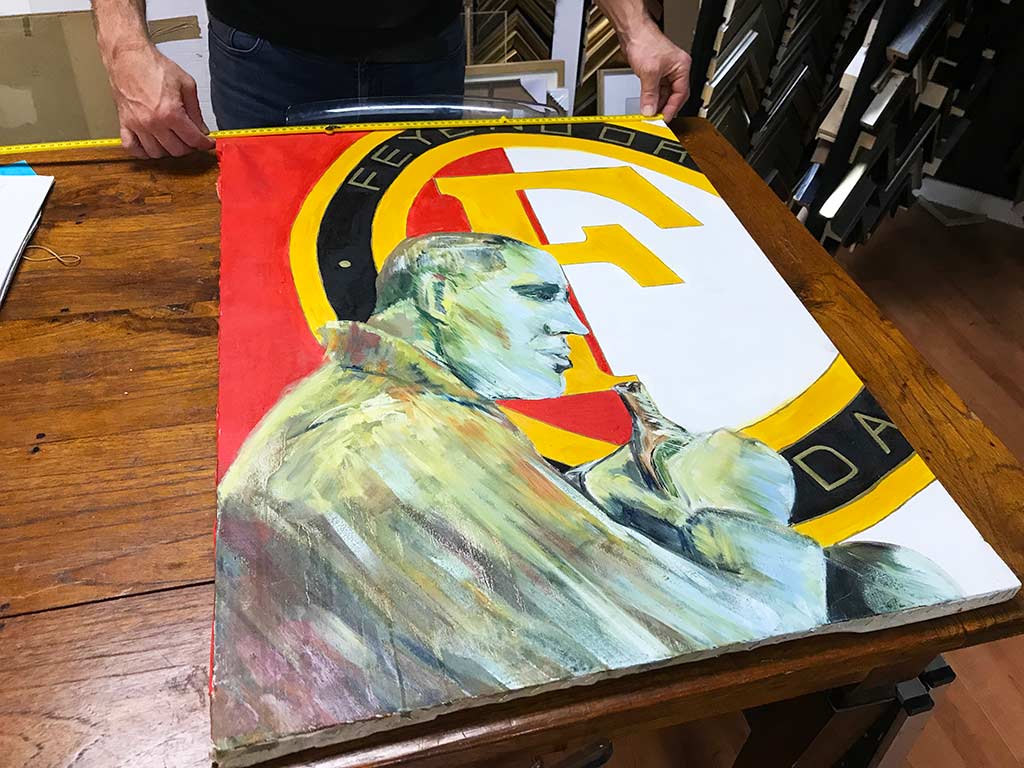
Taking ofF the Hanging wire
From the backside of the frame, the self-fabricated hanging wire was removed using a pair of cut-pliers.
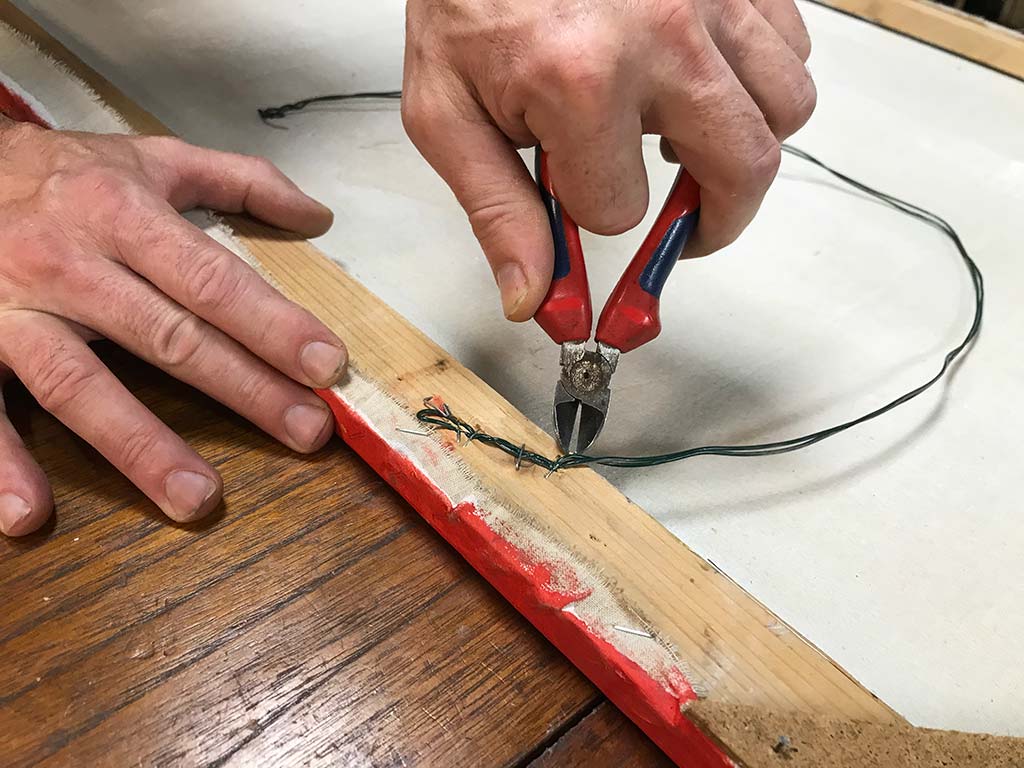
taking off the corners
Then with a staple lifter,the four corners were removed.
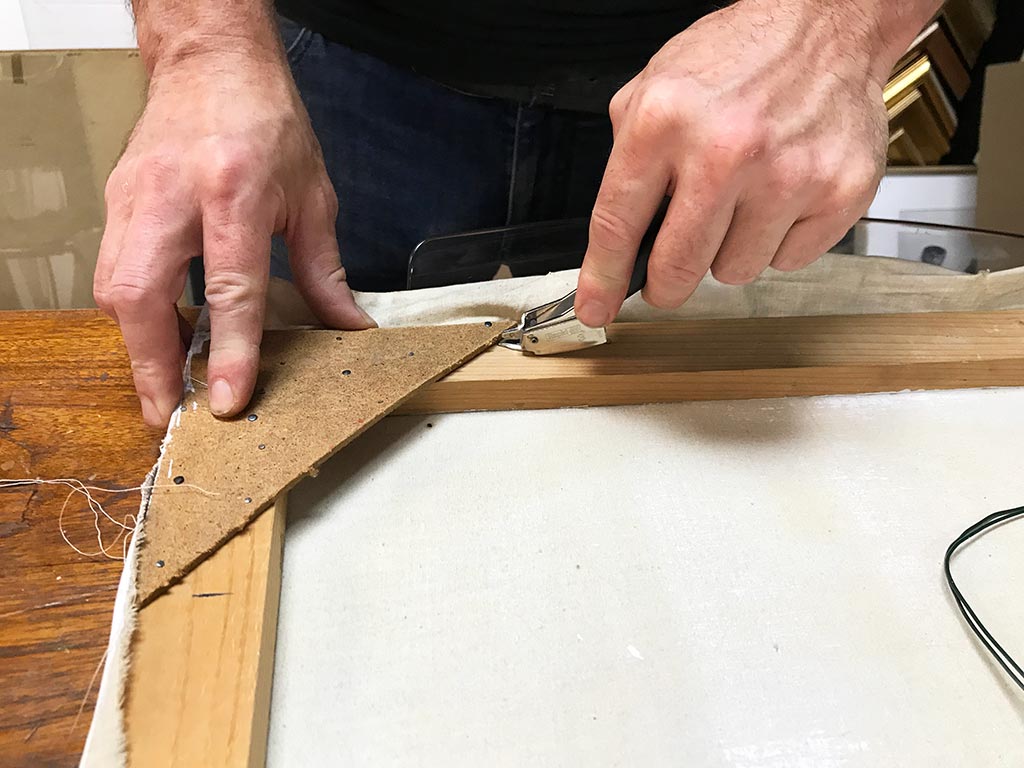
Taking out Staples
And then finally with flat nose pliers, all the staples that connected the canvas to its stretcher bars were taken out.
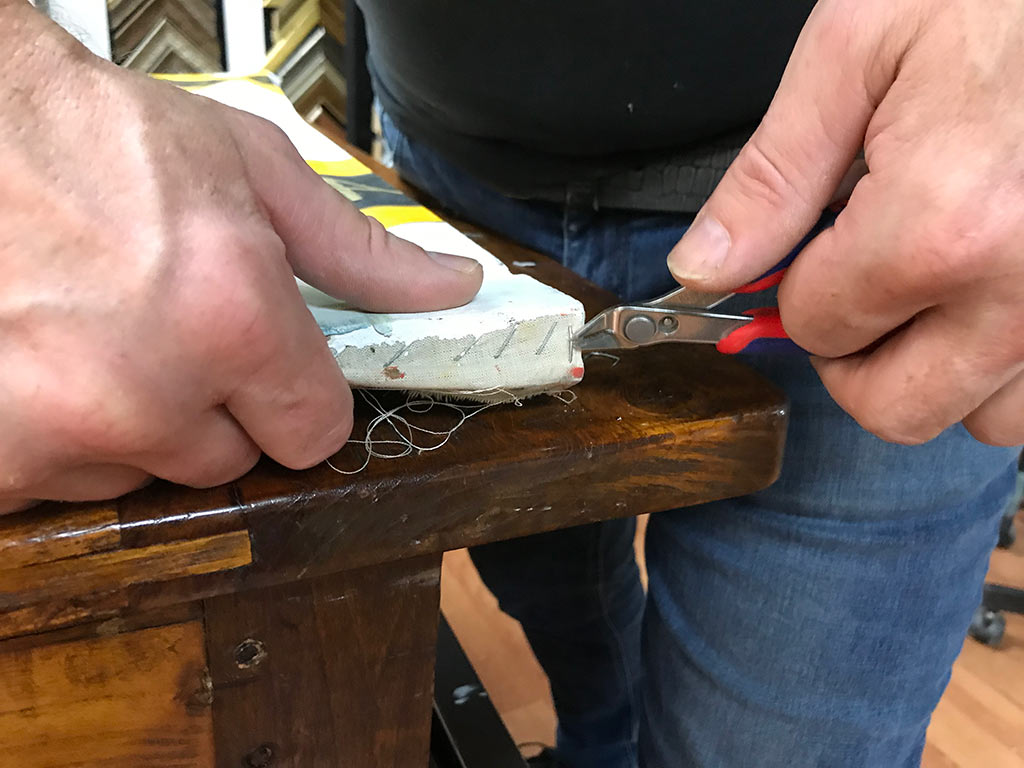
Taking off the Canvas
Now the canvas was not connected anymore with staples to the stretcher bars and, in theory, could be taken off its original flat canvas stretcher.
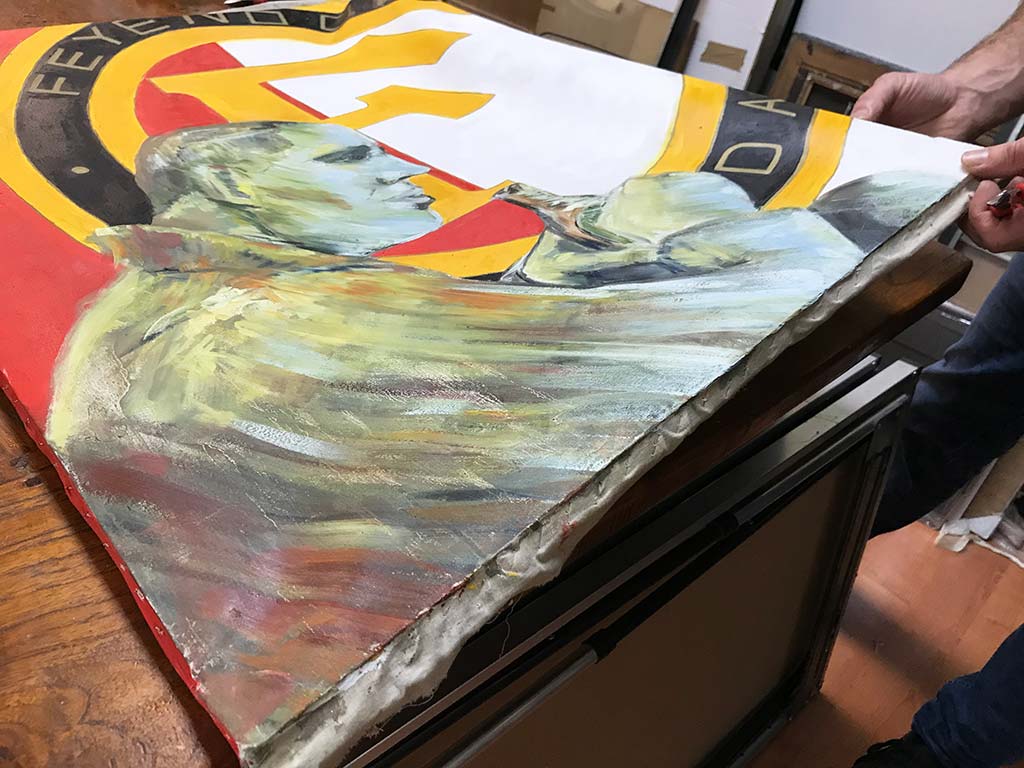
Gesso-Glued
However, the gesso I used to prepare the canvas back in 1995 had permeated through the porous canvas and glued, as it were, a part of the cotton on the upper stretcher-bar. So Gino had to be careful when removing the canvas not to rip the canvas.
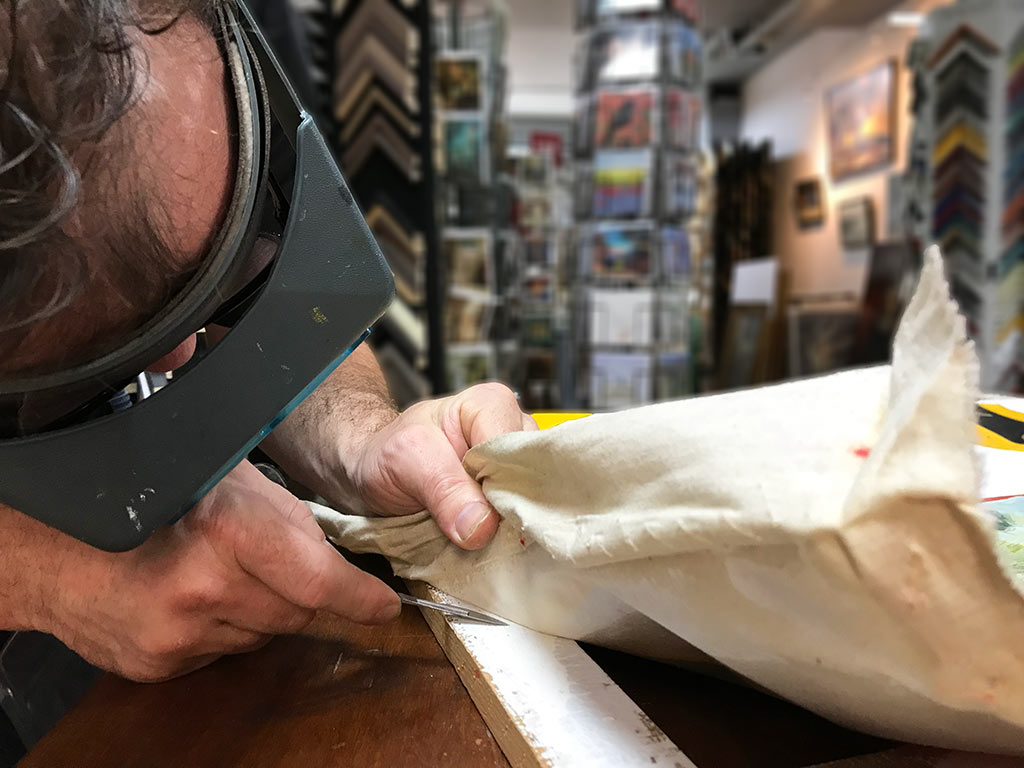
Measuring again
Fortunately, the canvas was removed safely from its stretcher bar, and Gino measured the canvas again to double-check the sizes for the new stretcher bars.
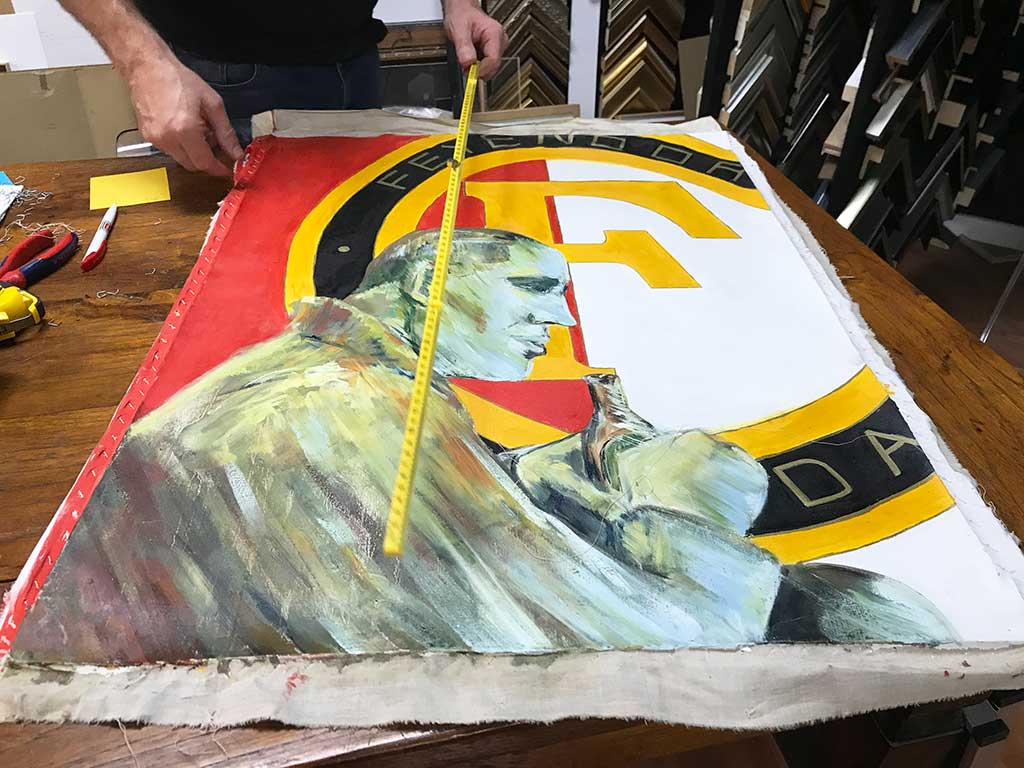
Custom Sized Stretcher Bars
Four new stretcher bars were custom-sized sawn. The new bars have the outer edge beveled. And have a slope on the front face of the bar to prevent stretcher marks. (When the stretcher bars become visible in the canvas).
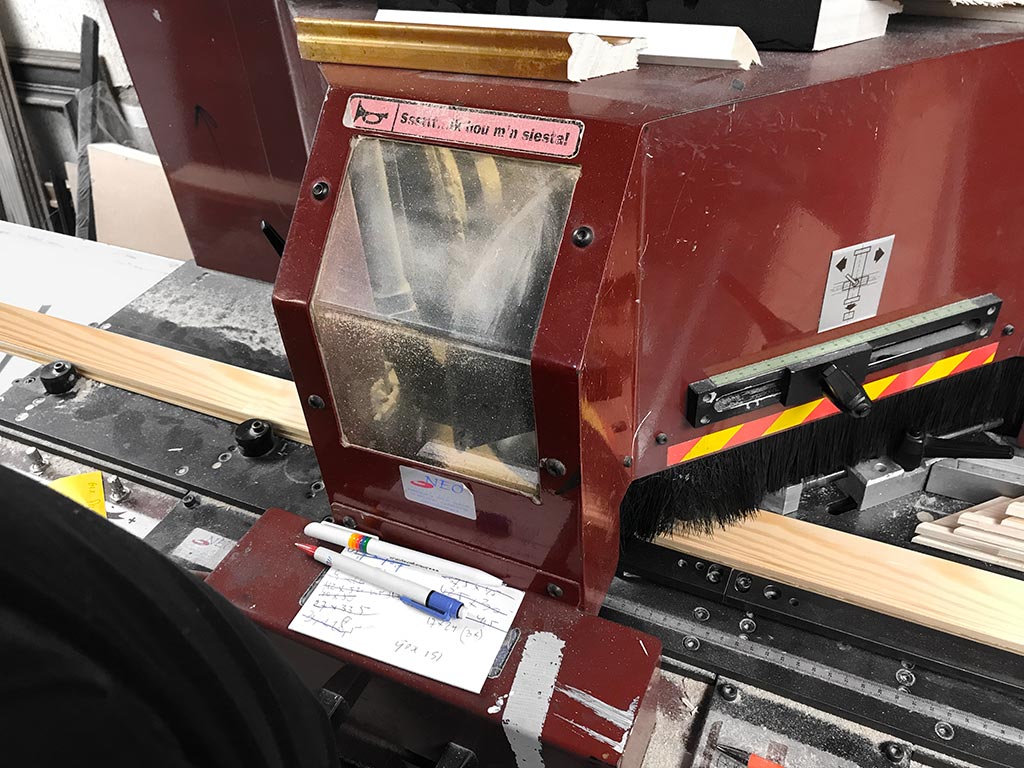
Keyable Canvas Stretchers
A painting will absorb moisture over the years and therefore expands, which could cause the canvas to sag. Besides how it looks, it could potentially also cause damage to the layers of oil paint. Keyable stretcher bars prevent this. The keys, by keying, can adjust the tension of a canvas in small additions.
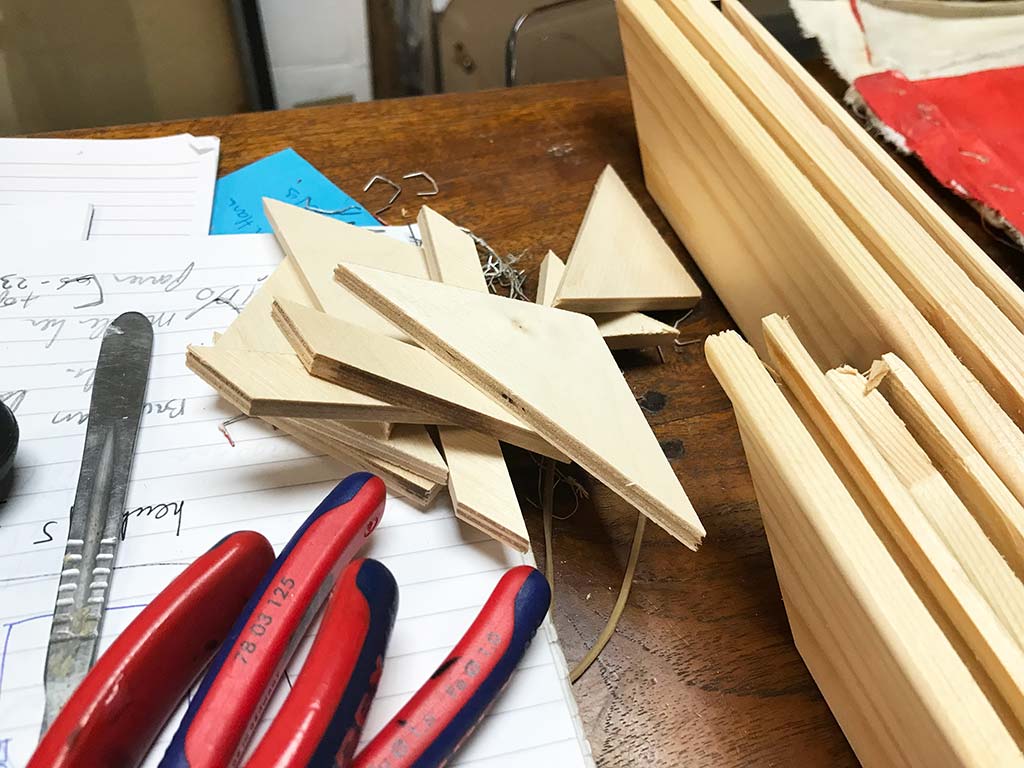
Assembly of the frame
Gino puts the frame together by connecting its joints. And with a mallet, a hammer with a rubber head, he makes sure the corners meet.
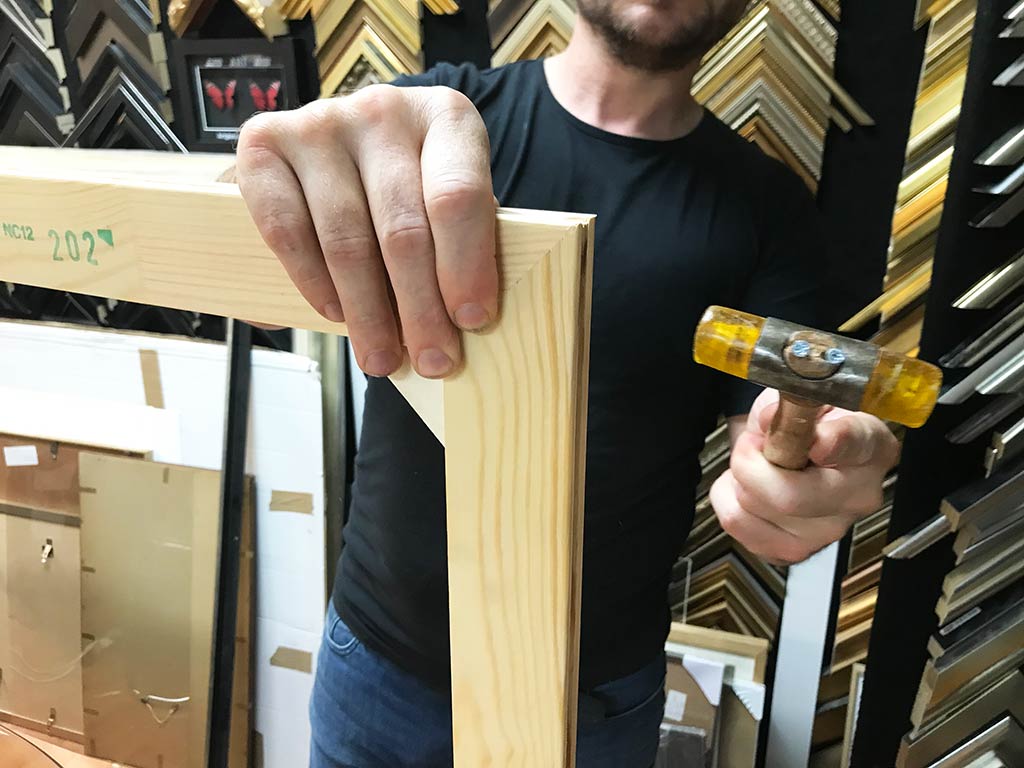
Checking the Frame
With a carpenter square, Gino checked if the frame was straight. The frame is square when there is no open space between the ruler and the stretcher bars. Another way to do this is to measure the frame diagonals.
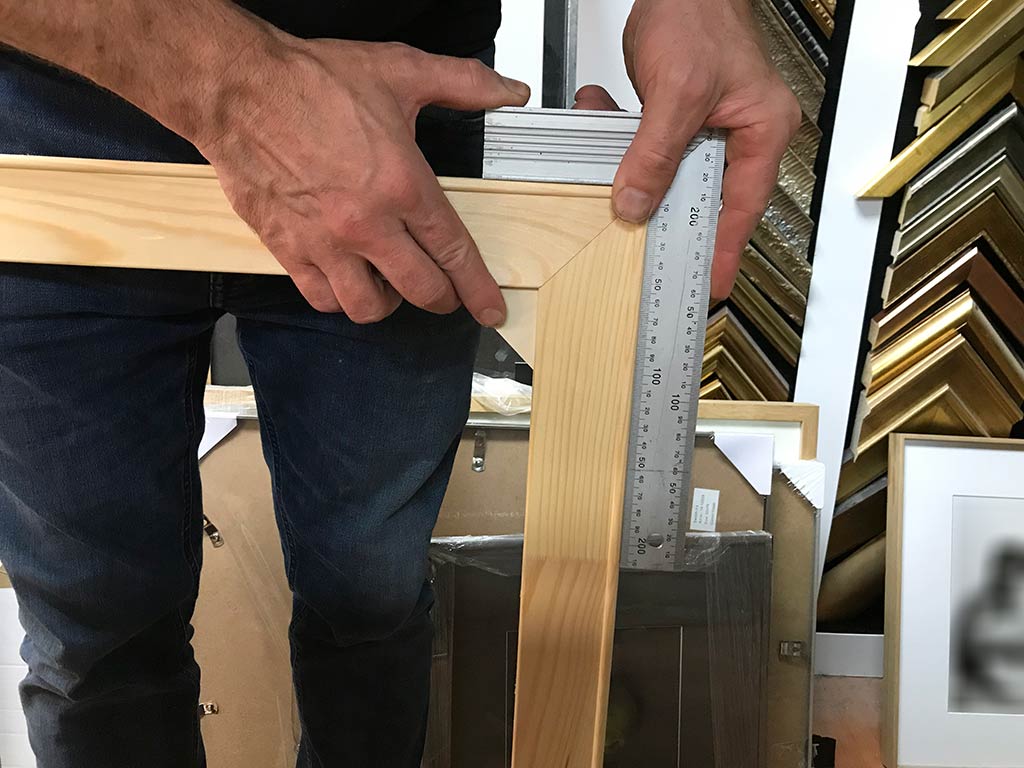
Stretching the canvas
Gino laid the canvas over the new stretcher bars. And connected and stretched the canvas working his way out from the middle.
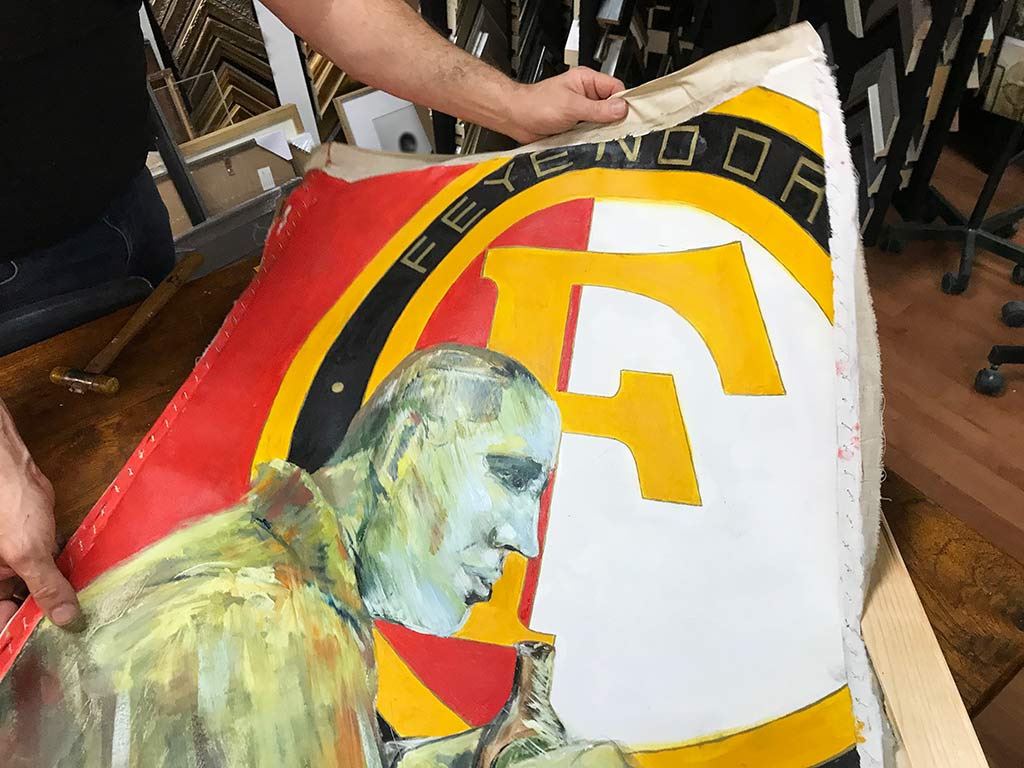
Stretching Pliers
He used muscle power and occasionally canvas stretcher pliers.
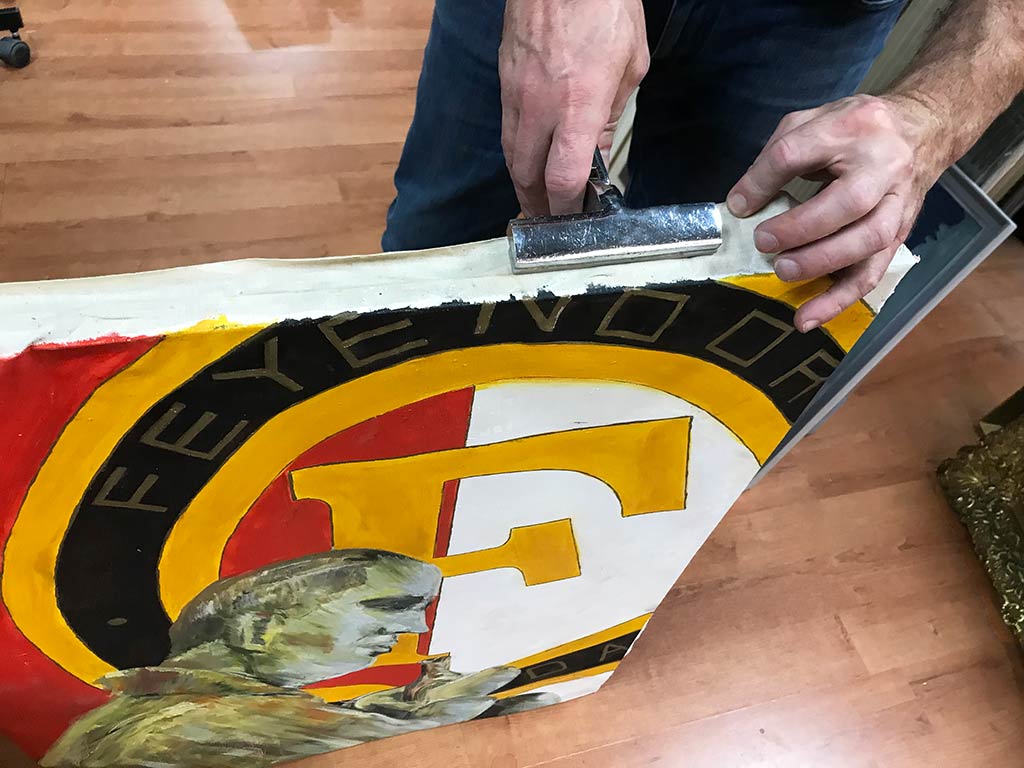
Staple Gun
And a regular hand staple gun to connect the canvas to the new stretcher frame.
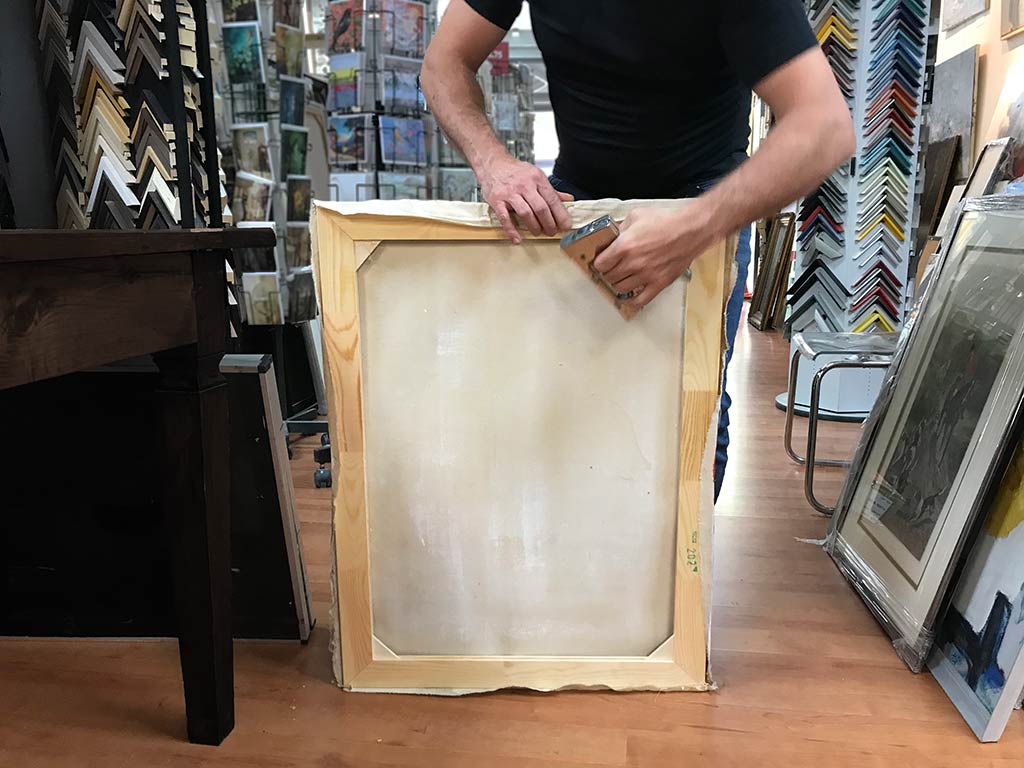
Water Soluble-Tape
The painting was now re-stretched on the new stretcher frame. Gino taped the canvas to the new framework with water-soluble tape.
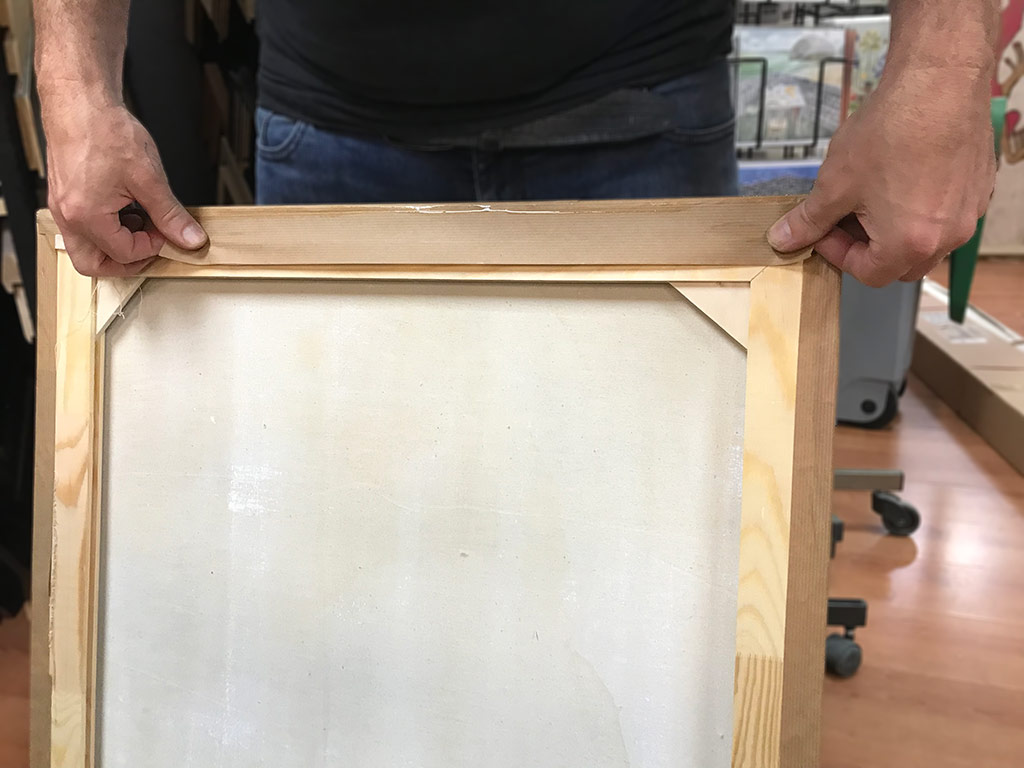
Final Check
At present, the re-stretched painting is straight again. And it has now beveled bars with keys to protect it for many more years to come.
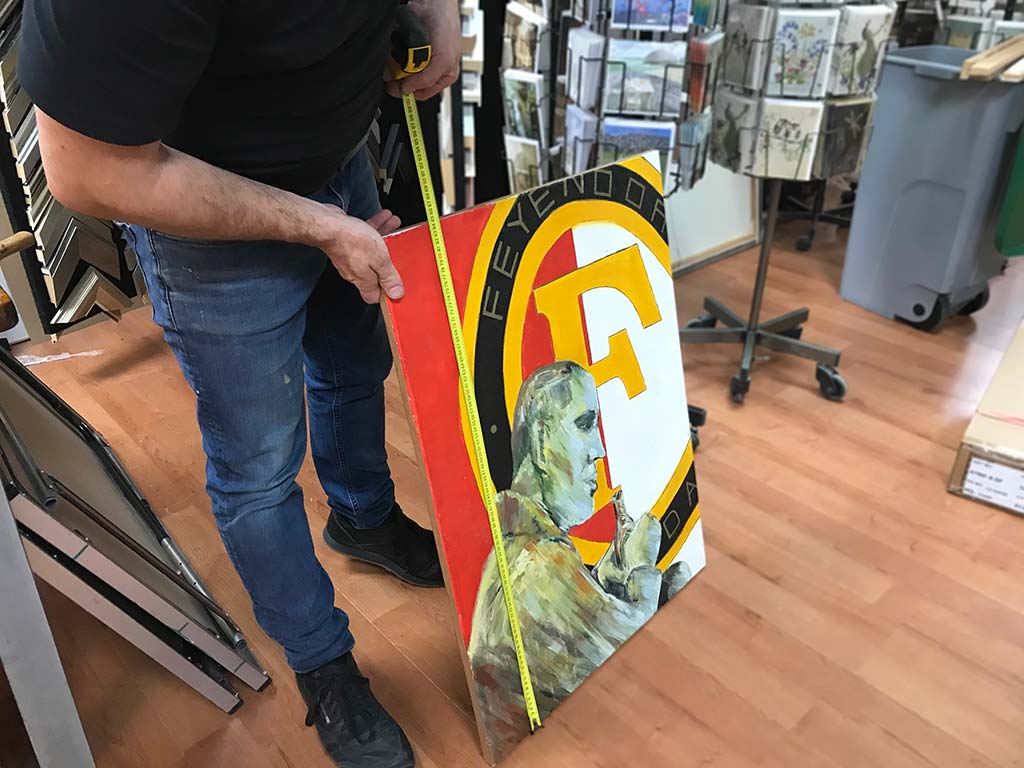
Floater Frame
The re-stretching of the painting is ready. We went a step further and choose a bold, thick floater frame. This is a box-like frame with the front open and no glass. It looks as if the painting is floating in the frame.
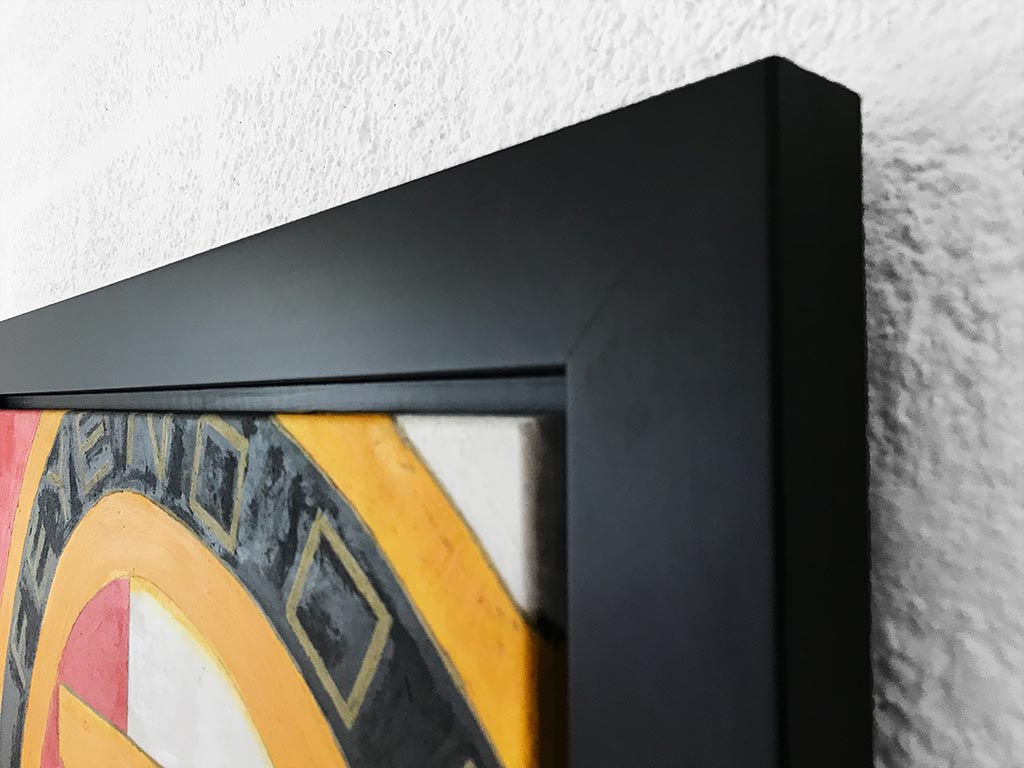
Certificate of Authenticity
I created a new Certificate of Authenticity where I added that the painting was re-stretched and framed in 2021.
This COA I have placed in a plastic cover to give to the owner. So he can safely store the COA-certificate in his, for example, admin folder with other Certificates of Authenticity or other securities and warranty papers.
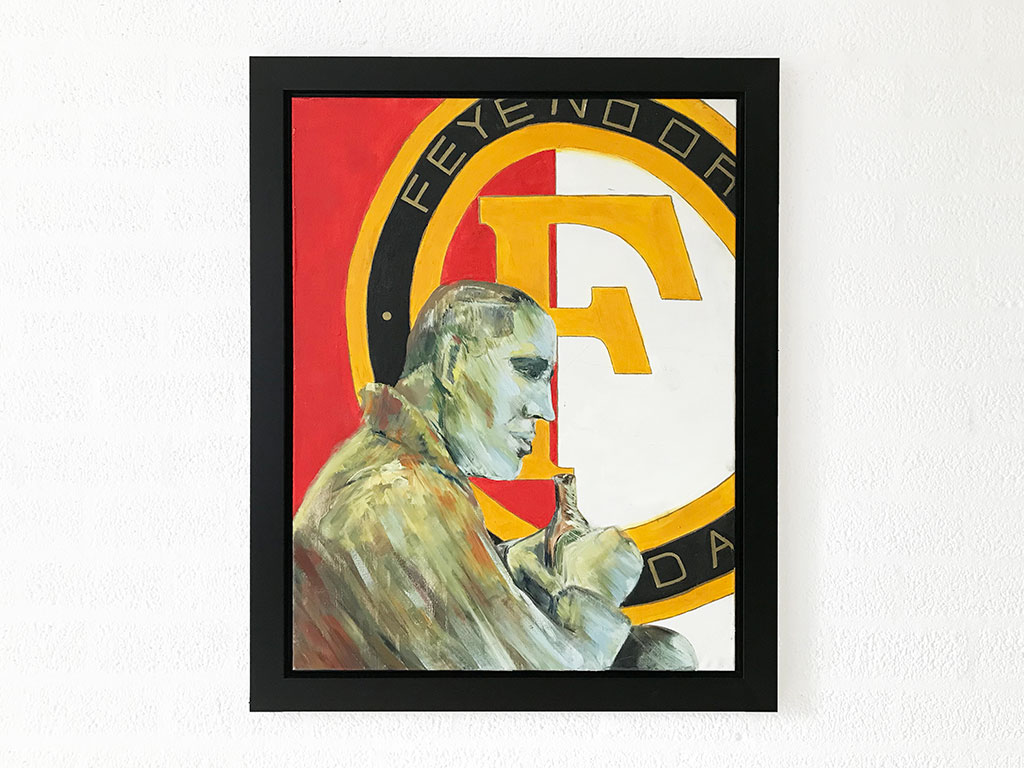
On the back are two stickers. One with the details and my jumping logo with url.
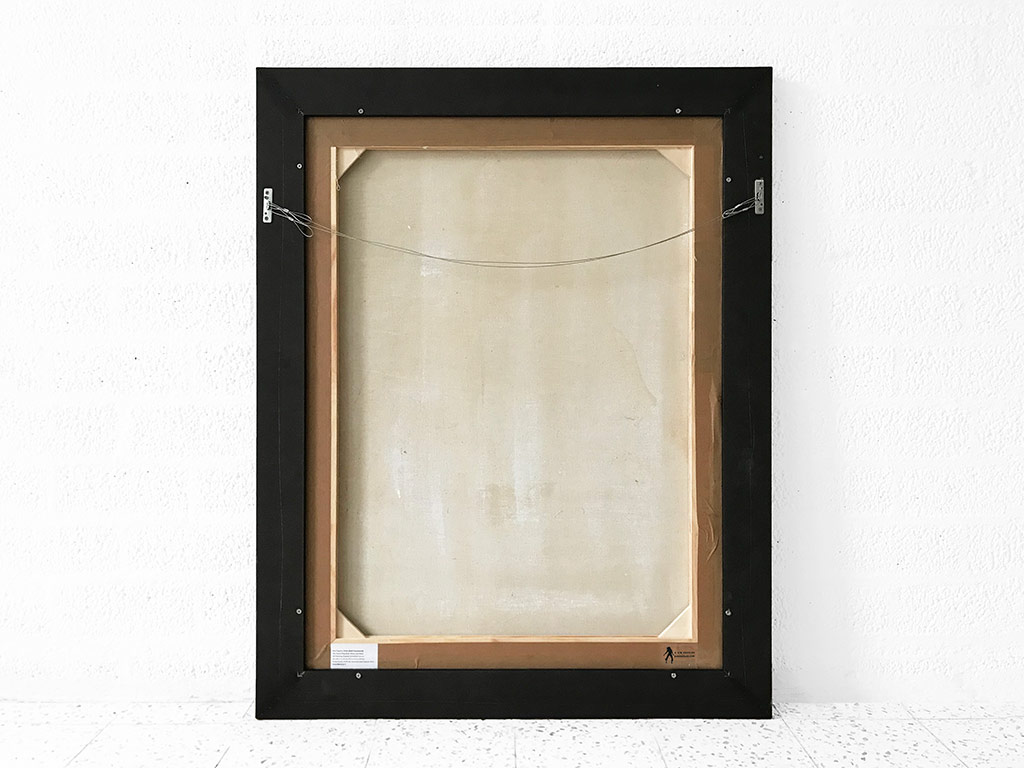
* Only available as digital download.
Insider Art News
Do you like this this kind of information?
Fill in your email and receive it directly in your inbox.
